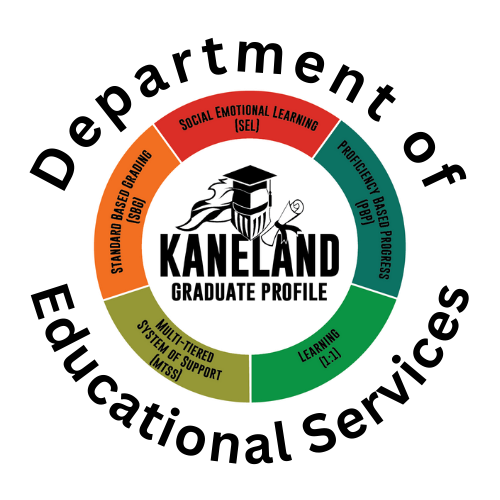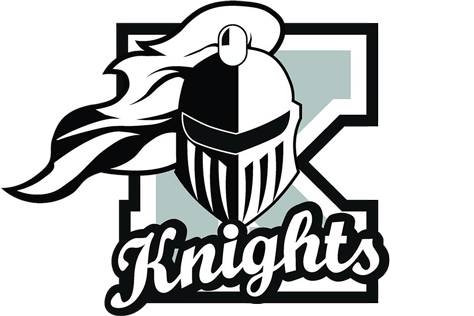About D302

Schools

Parents

Students

Staff


The Department of Educational Services is responsible for Curriculum and Assessment across the district. Here is just a glimpse at a few tasks the department oversees: •Professional Development EC-12 •Hosting the Annual IgKnight Conference •Local Assessment Data Analysis •External Assessment Monitoring and Reporting •Learning Proficiency Table Creation & Review •Multi-Tiered Systems of Support (MTSS) •Staff Weekly Communications •Family and Community Curriculum Events •Grant Funding •Curriculum Review Cycle •NIU Partnership •Early Entrance to Kindergarten Assessments •Personalized Learning across all schools •Summer School •Five Schools One Book
Disclosure of Federal Participation - Stevens AmendmentProjects or programs funded in whole or in part with Federal grant money must credit the Federal government for the Federal government's portion of the financial support.
This web page citation informs the public that the use of Federal dollars in Kaneland Community Unit School District 302 meets the Stevens Amendment requirement. Staff development opportunities, resource purchases and personnel have been funded in whole or in part with Federal entitlement dollars.
State StandardsKaneland constantly provides opportunities for curriculum to be aligned with all state standards and continues to review this alignment of standards. Kaneland staff does share not only state standard expectations with students but also our community expectations for learning.
Multi-Tiered Systems of Support (MTSS) Kaneland MTSS Handbook MTSS Structures
Personalized learning in Kaneland refers to a learning environment in which learners are active participants in goal setting, developing learning plans, tracking learning progress, and determining the methods by which proficiency will be demonstrated. At any point in time learning objectives, resources, groupings, assessment methods, and pacing may vary from learner to learner, as they pursue proficiency toward reported and supporting standards. A fully personalized learning environment moves along a continuum of instruction, driven by student needs and/or advocacy, and includes legacy, differentiated, individualized, and personalized learning experiences.
Personalized Learning Documents Ten Tenents of Personalized Learning Personalized Learning Look Fors Honeycomb Model for Personal Learning
Serving students in preschool through 12th grade, Kaneland CUSD 302 English Learners Program aims to ensure that all linguistically diverse students receive a quality education that enables them to succeed academically, and socially, with efforts to close the achievement gap, and attain proficiency in English within a culturally supportive environment. Kaneland has over 100 ESL students district wide and over 18 different languages represented in the district.
How does a student qualify for program services? Student qualify by completing a screener assessment (upon indication through the home language survey completed at registration, that another language is spoken at home). The screener assesses 4 language domains; listening, reading, speaking and writing. If a student receives an overall score of a 4.5 or below they qualify. If they receive an overall score of 5.0 they do not qualify. Parents and Guardians have the right to visit the sites ro observe services, have conferences with the ESL certified staff, and determine if they wish or do not wish to have their student enrolled. Declining of the program services requires a letter indicating refusal with parent/guardian signature sent to the ESL teacher and/or coordinator.
What is the ESL Program? English Learner Program encompasses a few different approaches depending on the student population need within the district. Programs are; Dual, TBE, and ESL. Kaneland currently implements the ESL or English as a Second Language Program. With instruction in English, students in preschool are provided sheltered instruction by an ESL certified teacher, kindergarten through 5th grade are provided small group supports by an ESL certified teacher, that encourages use of the English language in all four domains through various activities and tasks. Middle school and high school have supports embedded in their content classes, with collaboration between the ESL certified staff and general education teachers. Kaneland has over 100 ESL students with over 18 different languages represented in the district.
Mulitlingual Resources for Parents Illinois State Board of Ed Resources
How do we know EL students are making progress? English Learners (grades K-12) are assessed annually for English proficiency growth and academic progress with a state wide assessment called ACCESS. The ACCESS test is used to assess English language proficiency in the four targeted domains, while other state test such as IAR, is used to assess academic achievement in English.
How long does it take to learn another language? It typically takes between 5-7 academic years to learn another language (Collier, V.P, & Thomas, W.P, 1997). Although, it is important to note that every child is different. It can take five years or less for students with a strong foundation in their native language to learn another language and up to nine years or more for students who do not possess a strong understanding of their native language.
Sociocultural, linguistic, academic, and cognitive processes, are four major components that drive language acquisition. These processes should occur simultaneously in a supportive culturally responsive environment and with both their first language ( if the need is present)and their second language, to enhance student learning (Collier, V.P, & Thomas, W.P, 2007). The scope of Kaneland’s EL Program aims to adhere to these four principles.
There are dozens of additional services available for our Kaneland Community. Whether you need mental health support, youth advocacy, housing assistance, or more, our Community Resources page is full of useful links for our families, staff, students, and community. It also includes a link to 211 to help you get connected to help when you need it.
Click the button below to see our Community Resources page.
Department of Educational Services Staff
Dr. Sarah Mumm
Director of Educational ServicesEC-5
Dr. James Horne
Director of Educational Services6-12
Laura Garland
Personalized Learning CoordinatorAnnmarie Franz
Educational Services SecretaryEC-12





 D302
D302